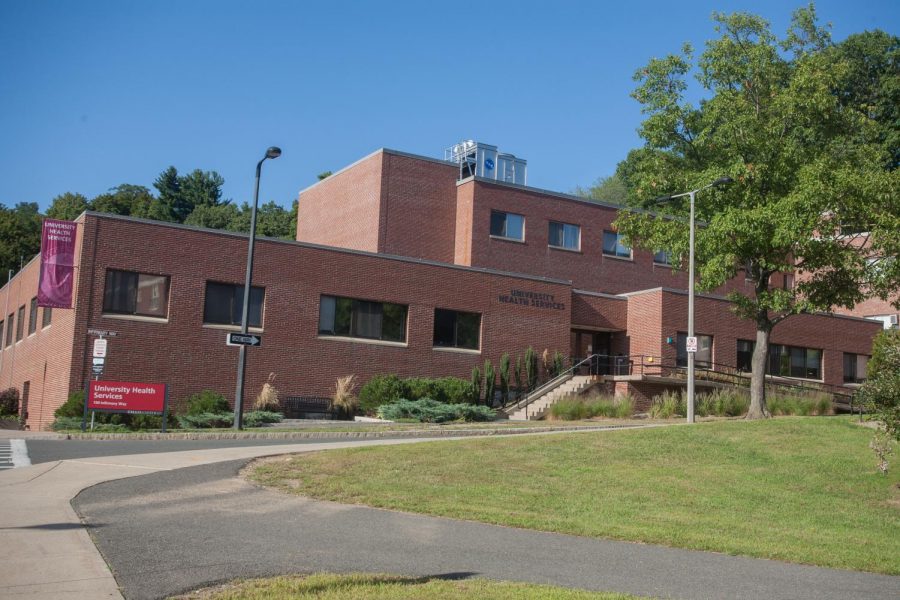The ongoing COVID-19 pandemic is shedding light on an issue that many chronically ill students are already painfully aware of: Colleges have no idea how to adequately support their students who suffer from chronic pain and illness.
Up until recently I, like many young adults, was blissfully ignorant of how chronic illnesses can impact a person’s life. I thought that they affected “other people” who were much older or sicker than I was, and that it could never happen to me. I had the privilege of making important life decisions without taking things like accessibility into consideration. I was soon surprised by just how quickly this could change.
I’ve lived with a condition that doctors tell me could be nothing but endometriosis for years, but my symptoms never consistently interfered with my academics. I ignored them until I couldn’t. In the last year, and especially the last few weeks, I’ve been in so much pain every day that I’ve had to confront the fact that I may be chronically ill myself. While I’ve lived with aspects of the disease for much of my life, such as irregular periods and fatigue, I’ve just started experiencing many of the more severe symptoms, like back and chest pain so bad I end up in the emergency room, this year. I have yet to learn how to manage many of these newer symptoms, a challenge that many other college-age young adults with chronic pain share.
It’s easy to brush off chronic illness as something that happens to “other people,” but the reality is that it can happen to anyone, at any time. We shouldn’t wait to care until it happens to us when so many of our fellow students face challenges within the university system every day.
By far the biggest challenge I’ve faced in the last few weeks is getting around campus. American universities, especially large state schools like the University of Massachusetts, pride themselves on their large, sprawling campuses. While spread-out facilities leave room for local vegetation and athletic fields, they’re an absolute nightmare for those students living with chronic pain. A fifteen-minute walk to the closest dining hall or the library is an inconvenience on my pain-free days and an unthinkable battle when my pain is at its worst. I’ve been advised to just take the bus, but this would only be a valid solution if the bus actually came on time. The inconsistency of both the bus schedule and the bus-tracking apps makes relying entirely on the PVTA nearly impossible. This has led me to skip both meals and classes, causing a host of other academic and health problems.
If I’m in too much pain to walk to class, I’m missing half the content in a given week. Making up all that extra reading and work on days when I’m well enough to do so seems like an impossible task when it’s all piled up. There’s only so many times you can email a teaching assistant for notes until they suggest going to Disability Services, which brings with it its own issues.
Disability Services provides support to students only when their physical or mental disability “substantially limits one or more major life activities.” Chronic illnesses and disabilities exist on a wide spectrum, meaning that some people who have them don’t suffer from them consistently. In cases like these, the University’s language makes it unclear whether Disability Services would actually provide support to a person who’s relatively healthy and active 90 percent of the time and completely down for the count the other 10 percent.
This lack of consistency also presents an issue when it comes to another line on the Disability Services website: “Furthermore, students with critical or time-sensitive needs for accommodations are strongly advised to contact Disability Services well in advance of the need for services to ensure adequate time to coordinate the required accommodations.” This simply isn’t a good enough option for people whose conditions can strike at any time and seemingly explode into huge problems out of nowhere, like in my case.
Universities in general aren’t equipped to handle the needs of students with chronic conditions. They’ve been able to sweep this fact under the rug for decades, benefiting from the fact that able-bodied, perfectly healthy students usually outnumber those with chronic illnesses. However, the long-term effects of COVID-19 will change that.
While COVID-19 may not be extremely debilitating for most young adults, long-term “post-COVID conditions” can range from difficulty breathing and chest pain to severe post-exertional malaise and post-traumatic stress disorder. Due to the high rate of COVID-19 transmission at UMass, there may be large numbers of students dealing with these chronic health issues very soon, if there aren’t already. Many UMass students that I know are already coping with one lasting effect of the virus: brain fog. This inability to think and reason clearly was mentioned by a student in one of my classes, who repeatedly apologized for being unable to finish sentences due to exhaustion and cognitive challenges.
What are University officials’ plans for supporting thousands of students who will soon be calling on them en masse to provide the necessary resources for COVID-19 long-haulers? They simply don’t have any. The long-term effects of COVID-19 have not been addressed by the University, and they likely will not be until they present a more significant challenge. Reform of the University’s disability and long-term COVID-19 policies isn’t on the table right now, but we need to fight until it is, on behalf of all the students who will need added support due to the pandemic as well as those who already face these challenges daily.
Katherine Kelly-Coviello can be reached at [email protected].



















